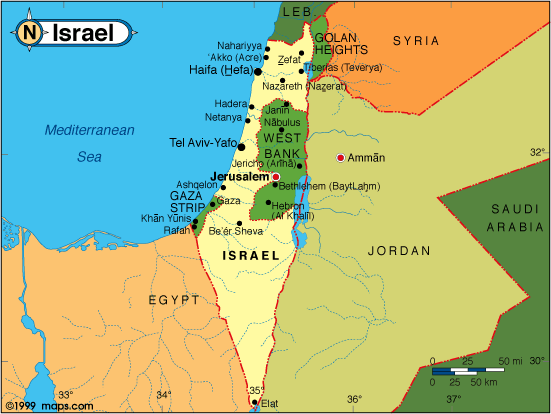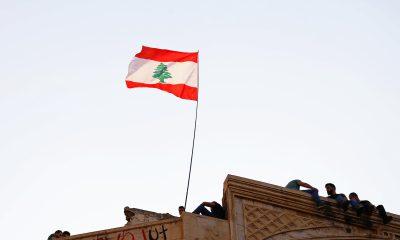World News
Israel leader wants world pressure on Palestinians
JERUSALEM — Israel’s prime minister is calling on the international community to demand that the Palestinian president end his newly formed unity government with the Hamas militant group.
Benjamin Netanyahu says the world should take the step in response to the recent disappearance of three Israeli teenagers in the West Bank.
Israel believes Hamas is behind the apparent kidnappings, though it hasn’t offered any evidence.
Hamas has praised the kidnapping, but has not taken responsibility.
Netanyahu said the abduction “shows the true face of Hamas.” He urged the world to call on Palestinian President Mahmoud Abbas to “end his pact with Hamas.”
Abbas formed a unity government early this month to end a seven-year rift with Hamas. The Cabinet consists of Abbas loyalists, but Hamas has agreed to support it from the outside.
THIS IS A BREAKING NEWS UPDATE. Check back soon for further information. AP’s earlier story is below.
Israeli soldiers arrested over 40 Palestinians in an overnight raid Tuesday, while the government imposed new punishments on Hamas prisoners as the search continues for three missing Israeli teens who Israel believes Hamas operatives abducted in the West Bank.
Tuesday’s arrests brought the total number of Palestinians detained since the teens disappeared Thursday to over 200, most of them Hamas activists, the biggest West Bank crackdown on the militant group in almost a decade. Israel has vowed to exact a heavy price from Hamas, saying the aim of the military operation goes beyond searching for the boys.
Prime Minister Benjamin Netanyahu convened his Security Cabinet, a group of senior government ministers, to discuss the crisis. During the three-hour meeting, the ministers agreed to worsen the conditions of Hamas prisoners Israel is holding, said an official familiar with the deliberations.
He would not elaborate, saying only that the operation to return the missing teens “continues and will be intensified.
” He spoke on condition of anonymity because the meeting was held behind closed doors.
The crisis has exacerbated already tense relations between Israel and the Palestinian government following the recent collapse of peace talks. Netanyahu has used the abduction to try to discredit Western-backed Palestinian President Mahmoud Abbas and the unity government Abbas formed with Hamas backing earlier this month. Israel has blamed Hamas for the apparent abductions, though it has not provided proof.
The military said that most of those arrested Tuesday were Hamas members. But the army also apprehended several members of Abbas’ Palestinian security forces from the Balata refugee camp near Nablus, their families said. Soldiers also searched homes and confiscated weapons from additional Palestinian security officers.
Abbas’ forces have been assisting Israel in the search for the teens. Israel previously has accused individual members of the Palestinian security of collaborating with militants.
The latest arrests took place around the northern West Bank city of Nablus, far from the southern city of Hebron, which has been the focus of the army’s search so far. Israeli forces continued to restrict the movement of Palestinians around Hebron.
The army said it found hundreds of weapons and explosives in Nablus. It posted photos online of bullets, grenades, guns and other weapons it said it found.
“As long as our boys remain abducted, Hamas will feel pursued, paralyzed and threatened,” said Lt. Col. Peter Lerner, an army spokesman.
Israel has made clear that the goals of the operation go beyond the search for the teens.
Israeli military commentator Alex Fishman wrote in the Israeli daily newspaper Yediot Ahronot that the apparent abduction created an opportunity “to suppress Hamas’s strongholds in Palestinian Authority territory to the greatest extent possible.”
The missing teens – two 16-year-olds and a 19-year-old – disappeared late Thursday at a hitchhiking junction in the West Bank on their way home from their religious seminary. The case has riveted the nation’s attention, receiving around-the-clock coverage in local media.
A group of university students launched a viral campaign called “Bring Back Our Boys” to draw global attention to the fate of the three teens. The campaign, modeled after a similar effort in support of kidnapped Nigerian schoolgirls, includes a Twitter hashtag and a Facebook page that has generated more than 90,000 “likes.”
Elizabeth Zlatkis, one of the organizers, said the effort is not meant to be political. “This is simply a cry out to the world to bring those boys back,” she said. “We’re only trying to do whatever we can to help the international community to put pressure to release those kids.”
Rachelle Fraenkel, the mother of one of the missing teens, told reporters the parents of the three teens are thankful for the outpouring of public support. “We are asking for continued prayers,” Fraenkel said.
Netanyahu claims Abbas is ultimately responsible for the fate of the teens, saying the attackers originated from territory under his control, and alleged the Palestinian leader’s new alliance with the Islamic militants created an atmosphere that encouraged the apparent kidnapping.
Abbas aides have rejected Netanyahu’s contention, saying Israel is in overall control of the West Bank. The junction where the teens were last seen is under full Israeli security control and is commonly used by soldiers and settlers.
Hamas has praised the kidnapping, but has not taken responsibility. In a statement Tuesday, the group said the detentions of Hamas members “will not stop it and it will not change its path.”
In the Gaza Strip, Israeli warplanes struck three weapons manufacturing and storage sites and another militant site early Tuesday, in response to a rocket launched from Gaza to Israel late Monday, the army said. Hamas ruled Gaza for the seven years before the unity government was formed.
The army also said it shot a Palestinian late Monday who tried, along with others, to set fire to the fence surrounding a West Bank Jewish settlement. The Palestinian was shot in the chest and stomach, and is in stable condition at a hospital in the West Bank city of Ramallah, hospital director Ahmad Bitawi said.
Associated Press writers Nasser Ishtayeh in Nablus, West Bank and Nasser Shiyoukhi in Ramallah, West Bank contributed to this report.
























